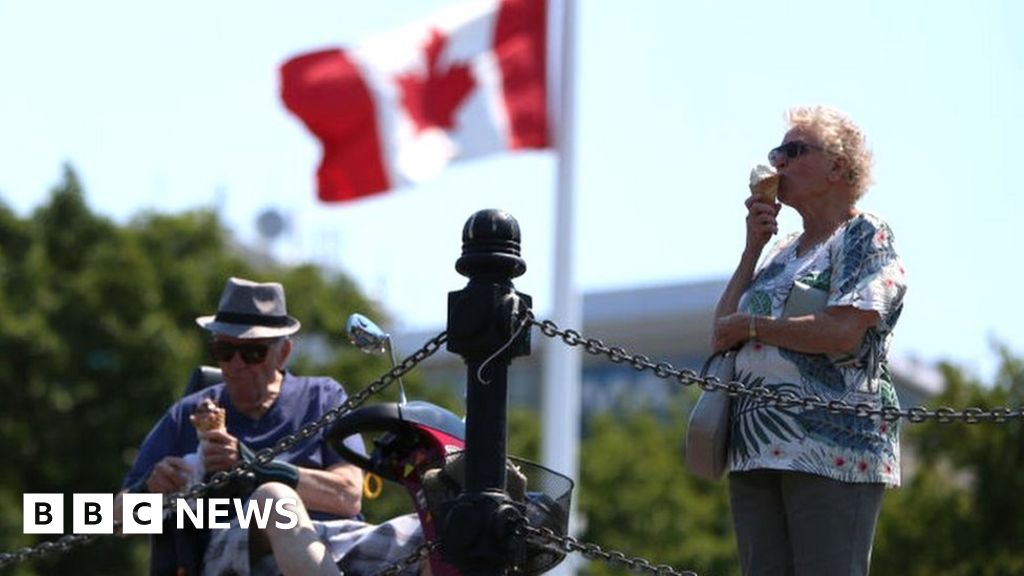Saratoga Dave
Well-Known Member
Reduced lift for the wings, I believe. We for sure have a few people here who can actually explain that. Density of the air?
Thanks Dave. I'll google it so I can ask them when I see them.Reduced lift for the wings, I believe. We for sure have a few people here who can actually explain that. Density of the air?
2 reasons really - 1.) Most internal combustion engines on smaller aircraft have carburetors, we call “normally aspirated”. The air gets “thinner” (less dense) at higher temperatures, reducing the amount of oxygen in the fuel/air mixture, thus reducing the power and resulting in longer takeoff distances. 2.) Low air density reduces the lift performance of the wings. Of course even turbojet & turbofan engines suffer from these inefficiencies but not as pronounced. Combined together these make it unsafe at certain airfield altitudes and temperatures. In a lot of cases 46.6° is way off the chart for the published operating envelope, effectively grounding the aircraft.Why are small planes grounded from heat? This is new to me. We should go /offtopic , this is a riding only thread

The Green Room
TLDR ... CNN link to heat wave predictions for the PNW... Whew. https://www.cnn.com/2021/06/26/weather/pacific-northwest-heat-climate-adaptation/index.htmlelectricbikereview.com
A cool thing about EBR is that someone that actually knows what they are talking about will often chime in, Thanks @VoltMan99. @Marci jo and @Tomster also fly small planes, IIRC. Certainly others ride regularly but don't pilot .2 reasons really - 1.) Most internal combustion engines on smaller aircraft have carburetors, we call “normally aspirated”. The air gets “thinner” (less dense) at higher temperatures, reducing the amount of oxygen in the fuel/air mixture, thus reducing the power and resulting in longer takeoff distances. 2.) Low air density reduces the lift performance of the wings. Of course even turbojet & turbofan engines suffer from these inefficiencies but not as pronounced. Combined together these make it unsafe at certain airfield altitudes and temperatures. In a lot of cases 46.6° is way off the chart for the published operating envelope, effectively grounding the aircraft.
Note - my other recreational vehicle is a tricycle haha!
Most but not all, and it can make a very big difference. Also, the morning temperature just before sunrise may be better for riding if it's an option. For example, Medford, OR shows it got to 115 degrees, but it's only 72 as I post this. I actually prefer it warmer than that for riding. lol I wasn't referring to aircraft.For the most part people here are talking about outside ambient air temperature. There’s a large swath of the PNW where many conventional small aircraft can’t fly right now - that’s never been the case ever.
My issue is not what the heat does to me, but what it does to my tires. Hot asphalt softens the rubberToday, tomorrow, and likely Tuesday, are too hot for my asthmatic senior butt to be on my bike (contemplating trying a ride really early tomorrow morning, but probably won't). And, to think I came home from NC for this
!
you need better tires mine handed the 156 degree asphalt.My issue is not what the heat does to me, but what it does to my tires. Hot asphalt softens the rubber
til yur skidding on turns. Tire pressure becomes a critical matter. Too much expansion ,& pop! Too little
,& sidewalls turn to mush. The Chinese say movement overcomes cold; keeping still overcomes heat.
Getting heat stroke can sneak up on you before you know it. Look up the symptoms & the ways
to treat & avoid.
So did mine up to a point; at $46 a piece they´re very good tires I´ve used on other bikes for years.you need better tires mine handed the 156 degree asphalt.

Sounds like Lytton burned up last night. It was evacuated.All time Canadian record of 49.4 was just set this afternoon in Lytton, in the Fraser Canyon.
Thats 121 F.
Fun fact: that is the highest temperature recorded anywhere north of 45 degrees north latitude.All time Canadian record of 49.4 was just set this afternoon in Lytton, in the Fraser Canyon.
Thats 121 F.
I would have ridden in 82 in the morning - that's fine, especially early morning when the sun is lower in the sky. It was raining here again yesterday, so I missed another day of riding. Supposed to be low 80's this afternoon and not raining, so I should be able to get out and ride again.Sounds like Lytton burned up last night. It was evacuated.
We cooled down to 117 yesterday. My thermometer said 119 on Tuesday. Got up this morning to go for a walk but it had only cooled off to 82. I turned the AC back on instead. My garden is a pain to keep alive in this.
Needless to say, no bike riding here.